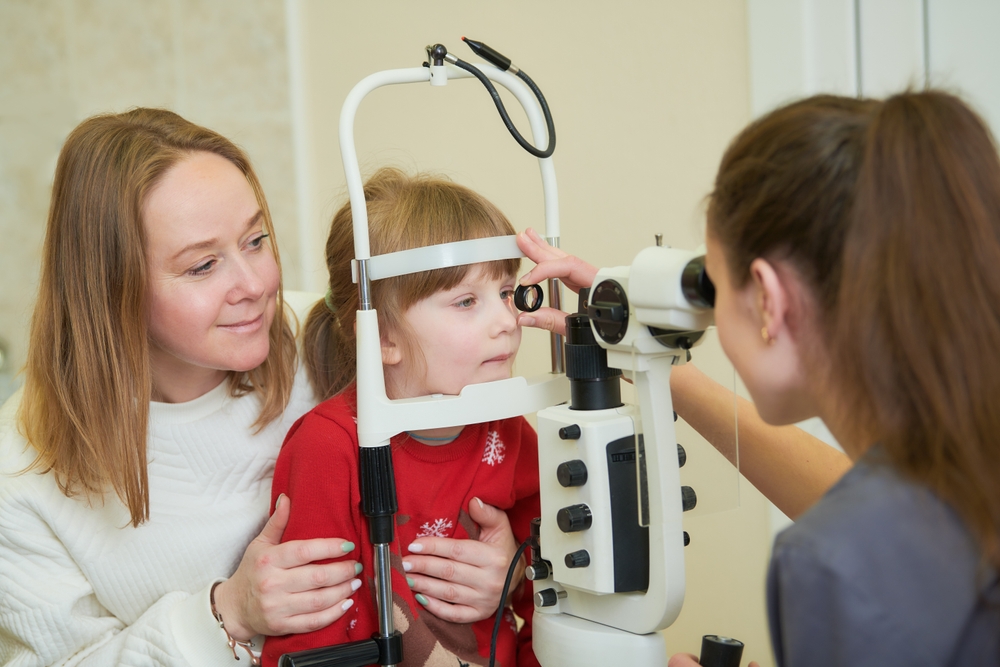
How is Myopia Treated in Children?
Myopia is a vision condition where distant objects appear blurry while close-up objects are seen clearly. It is becoming increasingly common in children, and early detection is crucial for managing the condition effectively. If left untreated, myopia can worsen over time, leading to more serious vision problems in adulthood. At Rieger Eyecare Group, we believe that regular eye exams are essential for early detection and successful treatment of myopia in children.
The Importance of Regular Eye Exams for Early Detection
Children's vision can change rapidly as they grow, which is why it’s vital to schedule regular eye exams. Many parents may not realize their child has myopia because children may not always complain about vision problems. Regular comprehensive eye exams allow optometrists to catch myopia early, even before noticeable symptoms appear. Detecting myopia in its early stages can prevent the condition from worsening and help implement effective treatments to slow its progression.
Signs of Myopia in Children
It’s important for parents to be aware of the signs of myopia, especially since children may not always communicate that they are having trouble seeing. Common symptoms of myopia include:
• Squinting to see distant objects
• Sitting too close to the TV or holding books and devices too close to their face
• Difficulty seeing the board at school
• Complaints of headaches or eye strain
• Rubbing their eyes frequently
• Blinking excessively
If you notice any of these signs in your child, it may be time to schedule an eye exam.
How Is Myopia Treated in Children?
Once myopia is diagnosed in a child, several treatment options are available to help correct and manage their vision. The goal of myopia treatment is to not only improve your child’s ability to see clearly but also to slow the progression of myopia, which can reduce the risk of developing severe vision issues later in life.
The most common treatment for myopia in children is prescription glasses. Glasses correct their vision by helping light focus correctly on the retina, allowing them to see distant objects clearly. For children, wearing glasses can significantly improve their quality of life, especially at school and during activities like sports.
Dual focus soft contact lenses are daily disposable lenses specifically designed to slow the progression of myopia in children. These lenses are worn during the day and are proven to not only correct nearsightedness but also manage the condition over time. Theses lenses offer a safe and effective solution for children.
Low-dose atropine eye drops are another treatment option used to slow the progression of myopia in children. These drops are typically applied once a day and work by relaxing the eye’s focusing mechanism. Atropine treatment has been shown to reduce the rate at which myopia progresses, making it a helpful tool in managing the condition.
In addition to corrective treatments, lifestyle changes can also help manage myopia in children. Encouraging outdoor play and limiting screen time can reduce the strain on their eyes. Research shows that children who spend more time outdoors tend to have a lower risk of developing myopia or experiencing rapid progression.
Optimizing Your Child’s Vision with Rieger Eyecare Group
Myopia is a common condition in children that requires early detection and appropriate treatment to manage effectively. Regular eye exams are key to catching myopia in its early stages and preventing the condition from progressing. At Rieger Eyecare Group, we are committed to providing comprehensive eye care to ensure your child’s vision is clear and healthy.
If you suspect your child may have myopia, contact Rieger Eyecare Group to schedule a pediatric eye exam. Visit our office in Normal, Illinois, or call (309) 320-2020 to book an appointment today.











